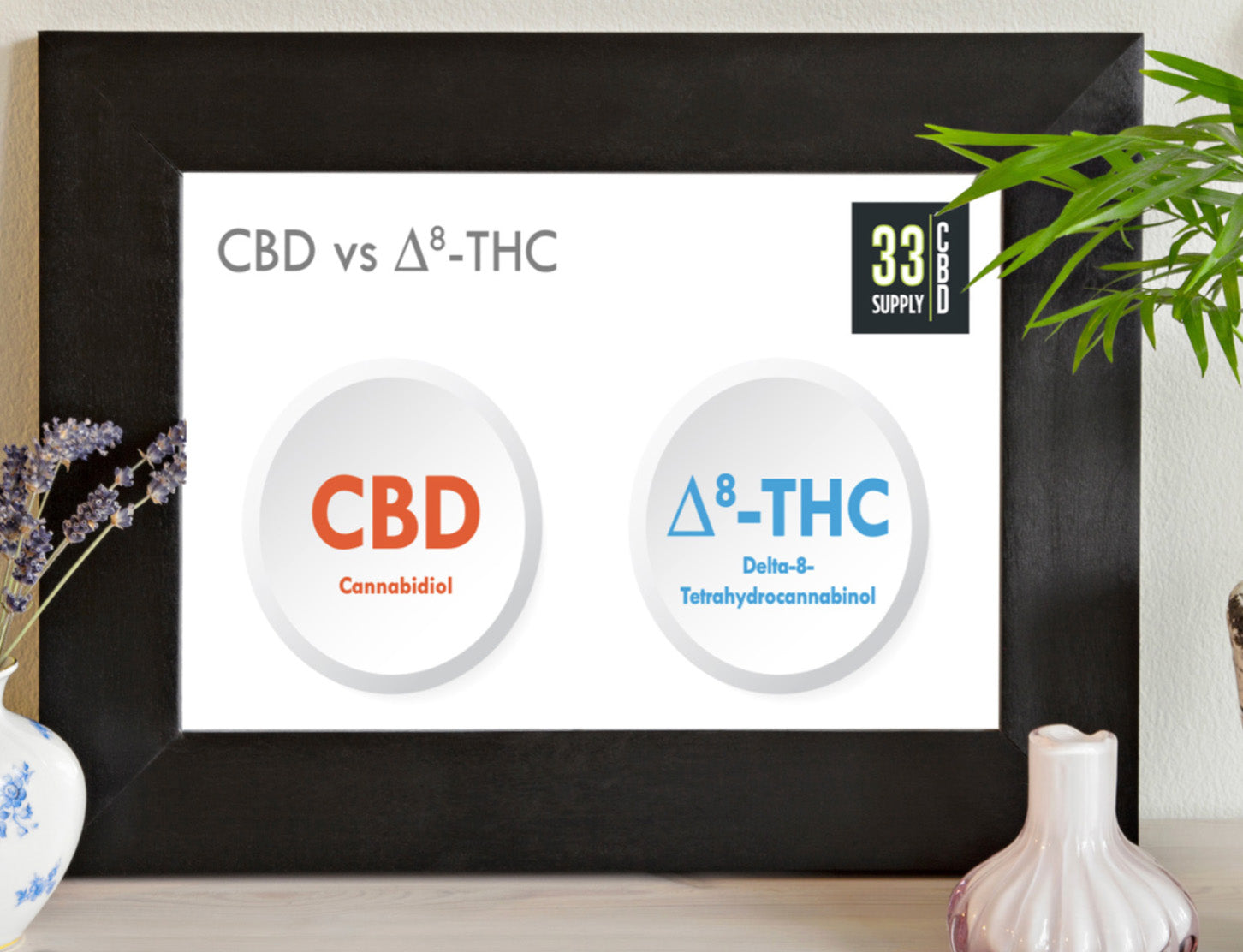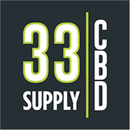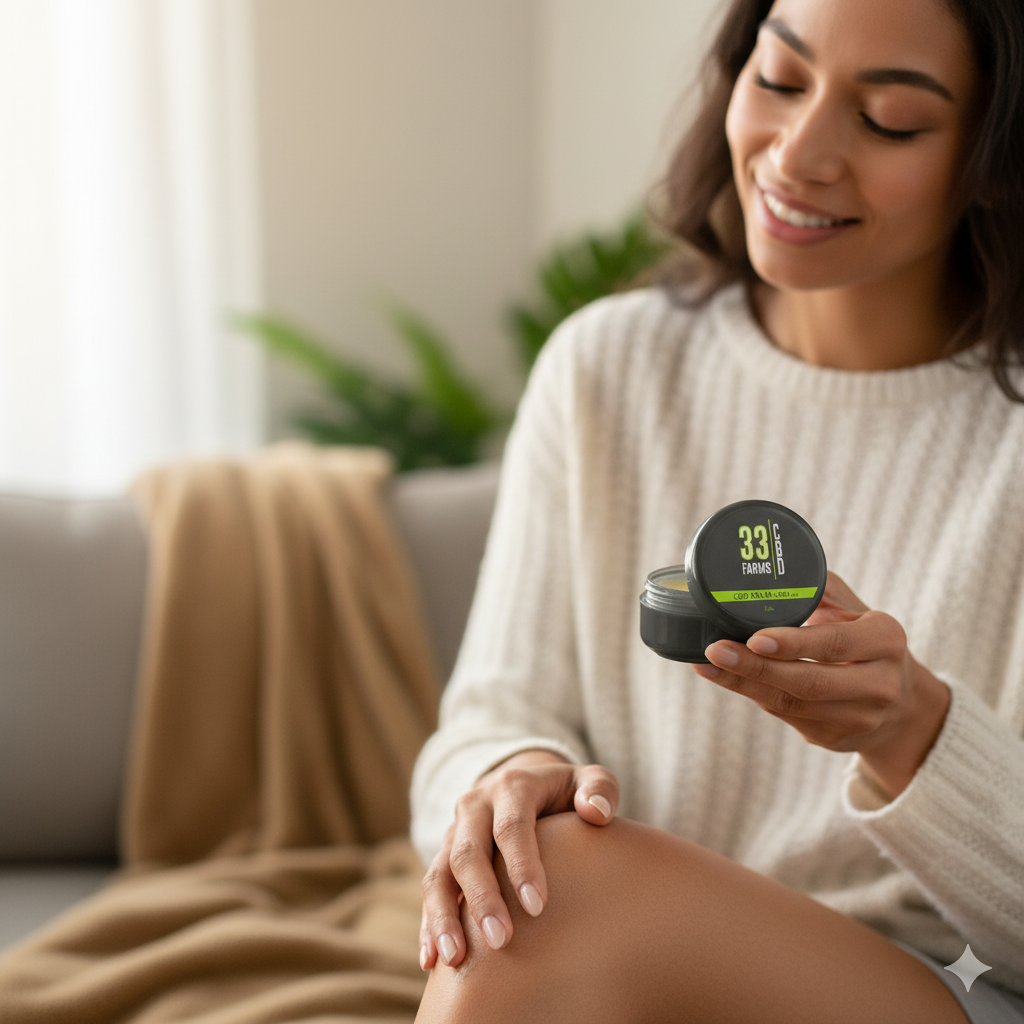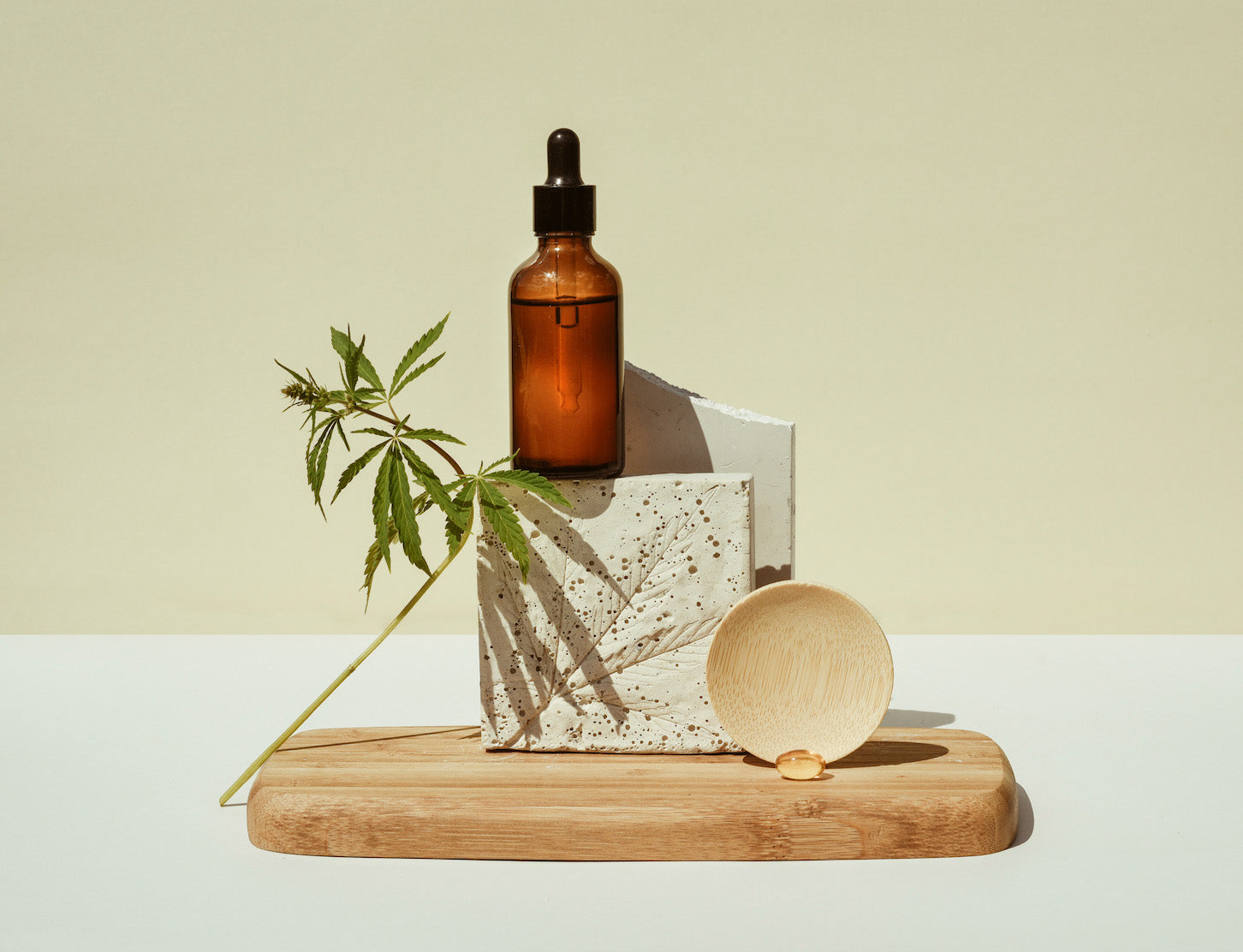What is the difference in Delta 8 and CBD

What is Delta 8 (∆8)?
It's worth mentioning that the legal status of delta-8 THC can differ between regions, as laws surrounding cannabis and its derivatives continue to evolve. It is always advisable to check local regulations before purchasing or using delta-8 products.Delta-8 and CBD are both cannabinoids, which are chemical compounds found in the cannabis plant. While they share some similarities, there are important differences between the two:
Chemical Structure:
Delta-8 (∆8) is a form of THC (tetrahydrocannabinol), the psychoactive compound in cannabis that is responsible for the "high" sensation. CBD (cannabidiol), on the other hand, is a non-psychoactive cannabinoid.
Psychoactive Effects:
Delta-8 has psychoactive properties, meaning it can induce a mild intoxicating effect, although generally reported to be less potent than Delta-9 THC (the most well-known form of THC). CBD, in contrast, does not produce a psychoactive high.
Legal Status:
The legal status of Delta-8 and CBD can vary depending on jurisdiction (State and / or County. CBD derived from hemp (containing less than 0.3% THC) is federally legal in the United States, while Delta-8 is in a bit of a legal gray area in some states. It's important to check the specific regulations in your location.
Potential Uses:
CBD is often sought after for its potential therapeutic benefits, such as reducing stress, promoting relaxation, relieving pain, and aiding sleep. Delta-8 is also reported to have similar effects, although its psychoactive properties may make it less desirable for individuals seeking non-intoxicating options.
Side Effects:
Both Delta-8 and CBD are generally considered to have a favorable side effect profile. However, Delta-8 may cause mild intoxication, dry mouth, increased heart rate, red eyes, and altered perception.
CBD, in comparison, tends to have minimal side effects, such as dry mouth, drowsiness, or changes in appetite. It's worth noting that the scientific research on Delta-8 is still limited, and more studies are needed to fully understand its effects and potential benefits or risks. If you're considering using either Delta-8 or CBD, it's always advisable to consult with a healthcare professional familiar with cannabis products to determine what may be suitable for your specific needs.
Drug Test: Delta 8 is a form of THC so if passing a drug test is a concern our recommendation would be to not take Delta 8 as a part of your daily routine.
33 CBD Supply is a fully integrated supplier from our farming operation, extraction, formulations and distribution of CBD, Delta 8, CBN, THCv and other custom extracted and formulated products.
For More information visit our website at www.33cbdsupply.com
Recent Blogs
Celebrating Veterans with Exclusive Discount Offers
Veterans Day is a moment to honor the sacrifices of...
CBD Balm for Sore Muscles: A Natural Option for Daily Relief Everyday Soreness
Instead of relying only on pills or harsh-smelling ointments, more...
An Introduction To CBD
CBD Basics: CBD is everywhere, literally. So you have either...




Leave a comment